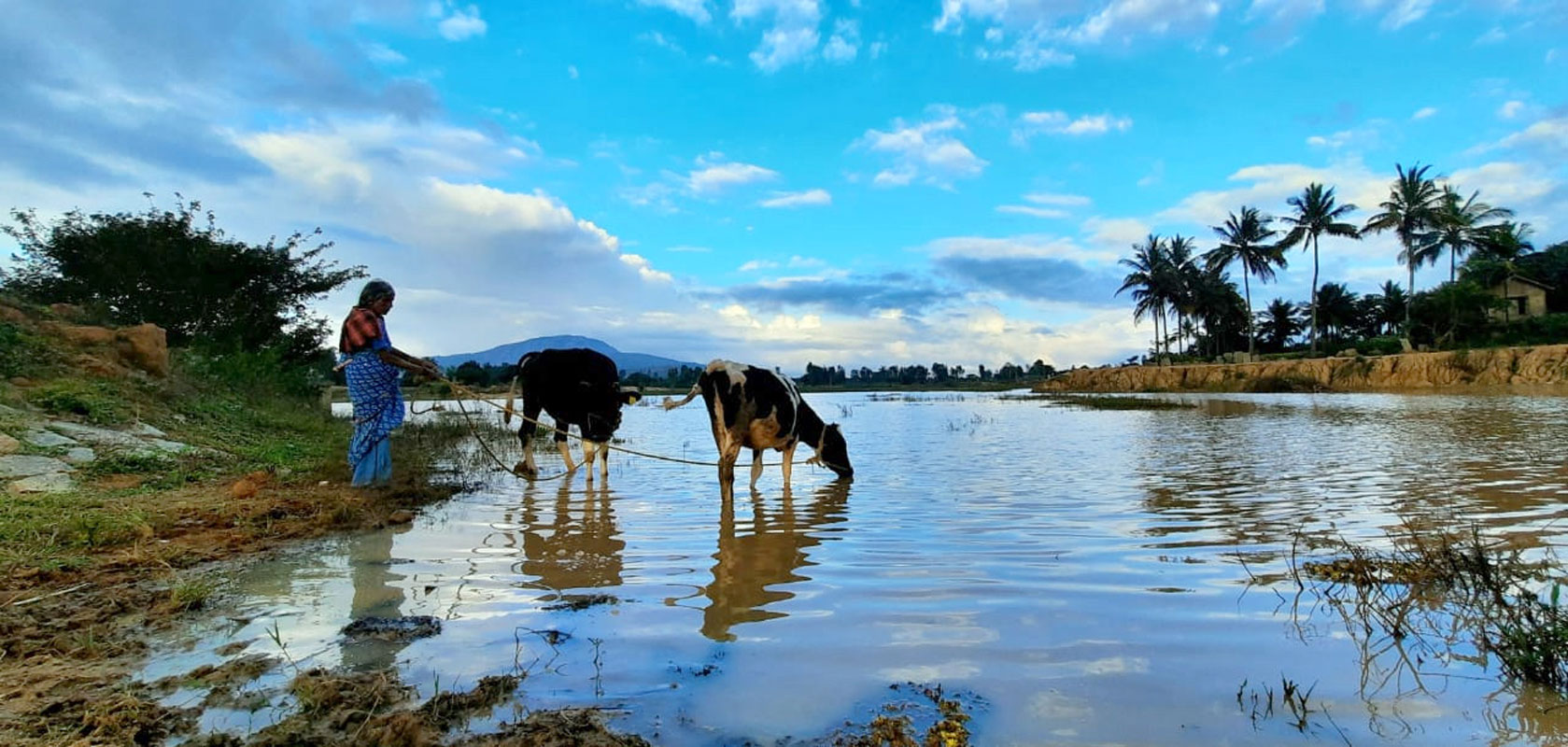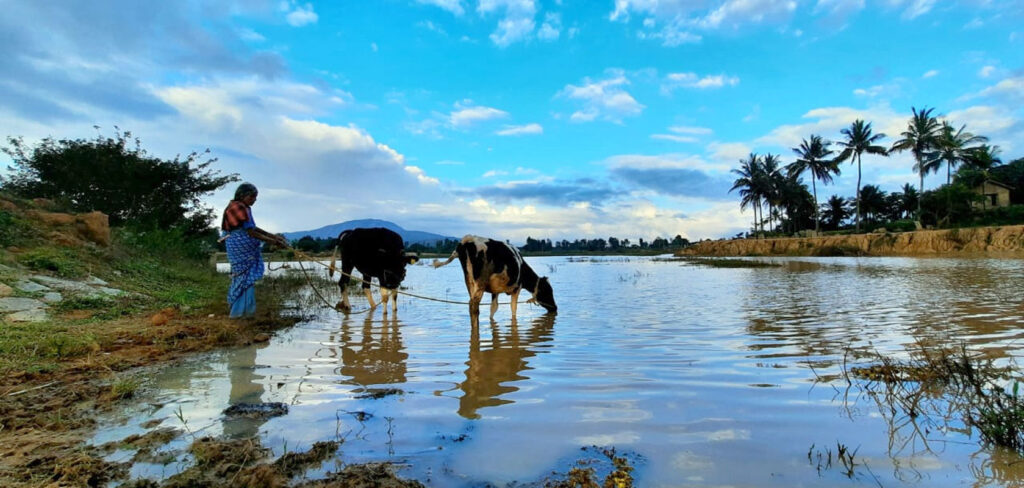.0The Environment Sustainability Rotarians Action Group (ESRAG) of RID 3190 and the International Fellowship of Rotarian Photographers (IFRP) organised a photo contest to create awareness on conservation of biodiversity and diverse culture, and also raise funds for three major district projects. The contest brought together various Rotary action groups, Rotarians and Rotaractors in the district through an online platform. “The strategic partnership between RAGs, International Fellowships and local clubs will breathe new life into Rotary as it allows members across the world to raise funds, grow membership and exchange project ideas virtually. All the initiatives were carried out locally,” says Latha Krishnan, coordinator of the photo contest.

Three projects — Rupantara, a menstrual health programme at Rajakunte village, Koira Lake rejuvenation and rain water harvesting (RWH) at government schools — were chosen for funding keeping in mind the scale of impact they will have on people and the environment. After the District RAGs chair Raghu Allam gave the green signal, a virtual The Rotary En-vision Photography Contest was announced. “It showcased environment-related projects carried out by our district. We encouraged amateur and professional photographers to capture the rich biodiversity and share it with the world,” she said. The IFRP experts judged 500 entries from across the country. DG B L Nagendra Prasad was the chief guest; 28 Rotary clubs and four Rotaract clubs participated. The event helped raise ₹5.27 lakh, which was allocated for the three projects. The photo contest was supported by the Rotary Fellowship of Wildlifers for Conservation.
Project Rupantra
District MHM chair Nisha Ballerie says that the MHM initiative began three years ago with the mapping of existing knowledge, attitude and practices in Rajakunte, a semi-urban locality near Bengaluru. “With the help of self-help groups, Asha workers and anganwadi staff we engaged the girl students for behaviour change at the school and community level.” As part of the training, 12 implementation partners, Rupantara Sakhis as they are called, were given free kits consisting of cloth pads and menstrual cups and were told to first try them out before advocating them to the village women. The MHM kits were sponsored by NariYari, a social enterprise in Bengaluru.

At the ground-level, the sakhis went from door-to-door urging women to switch to reusable menstrual products to reduce the toxic waste generated by single-use sanitary napkins. “Since the volunteers are known faces and have built trust over the years, the message was readily accepted,” says Nisha.
Shylaja, an Asha worker and a Rupantara sakhi, who promotes menstrual cups in the village says, “I have tried it myself and now have rash-free periods. It also saves me a huge amount of money that I used to buy sanitary napkins every month. I am contributing in a small way to keep Rajakunte green and bring transformation.” A recent survey conducted by the sakhis shows that 75 per cent of the women are willing to buy cloth pads and 30 per cent of them are willing to switch to menstrual cups when available at reasonable rates “if it ensures chemical-free periods and doesn’t pollute their surroundings,” says Shylaja.

Before she came up with Rupantra with the help of her club, RC Bengaluru Platinum City, Nisha had conducted MHM awareness programmes for over 10,000 girls and women in and around the city.
Five clubs came together to form Gramalakshmi, a self-help group, with seed funding in 2019. This SHG is now producing and supplying Aaram cloth pads to the government schools, colleges and for the Rupantra Project. “Four women from Sriramanhalli near Bengaluru are successfully running the SHG. Around 350 women were trained across seven villages to carry forward our mission. Along with a couple of NGOs, we are working to stop around 200,000 single-use napkins from being dumped into landfill sites each year. ”
Lake restoration
Rampant quarrying of granite boulders over decades had left the residents of Koira village in Devanahalli taluk in rural Bengaluru jobless as agriculture was destroyed due to drying up of lakes and other water bodies. “We had no choice but to move out of the village or join the quarrying business,” said Chikkegowda (54), a local resident.
He sought the help of RC Bangalore Raj Mahal Vilas and its president Sanjay Krishna decided to take up lake restoration in Koira. A study report was submitted to the project committee and it was first decided to clear around 57,000 cubic metres of silt while cleaning the feeder canal. “The villagers had already desilted 15,000 cubic metres of muck on their own. We completed the project in two years,” says Krishna.
The project cost was pegged at ₹80 lakh and through the photo contest, they had received ₹1.8 lakh. The additional funds were contributed by villagers who also joined the manpower and pooled in other resources for the lake restoration work. “Eight families gave up their 10-acre land, which was an encroachment, near the lake as they wanted to restore the lake and help regain lost livelihoods,” he says. Today, the Koira Lake is brimming with water, along with the wells in all the four villages, and farmers have begun work on their land. “We want those who left the village to return,” smiles Chikkegowda.
The RWH project, which aims at setting up rainwater percolation units at 100 government schools in Karnataka, has recently inaugurated two units at Hoodi Government Schools near Bengaluru. The project cost of ₹1.25 lakh was contributed by the employees of Caterpillar, a construction and mining equipment manufacturer. The units will be maintained by a student committee and monitored by RC Bengaluru Lake World. Project in-charge John Daniel says there are plans to convert the student committee into a Rotaract club. The funds received from the photo contest will be used in the setting up of RWH units in other schools.






